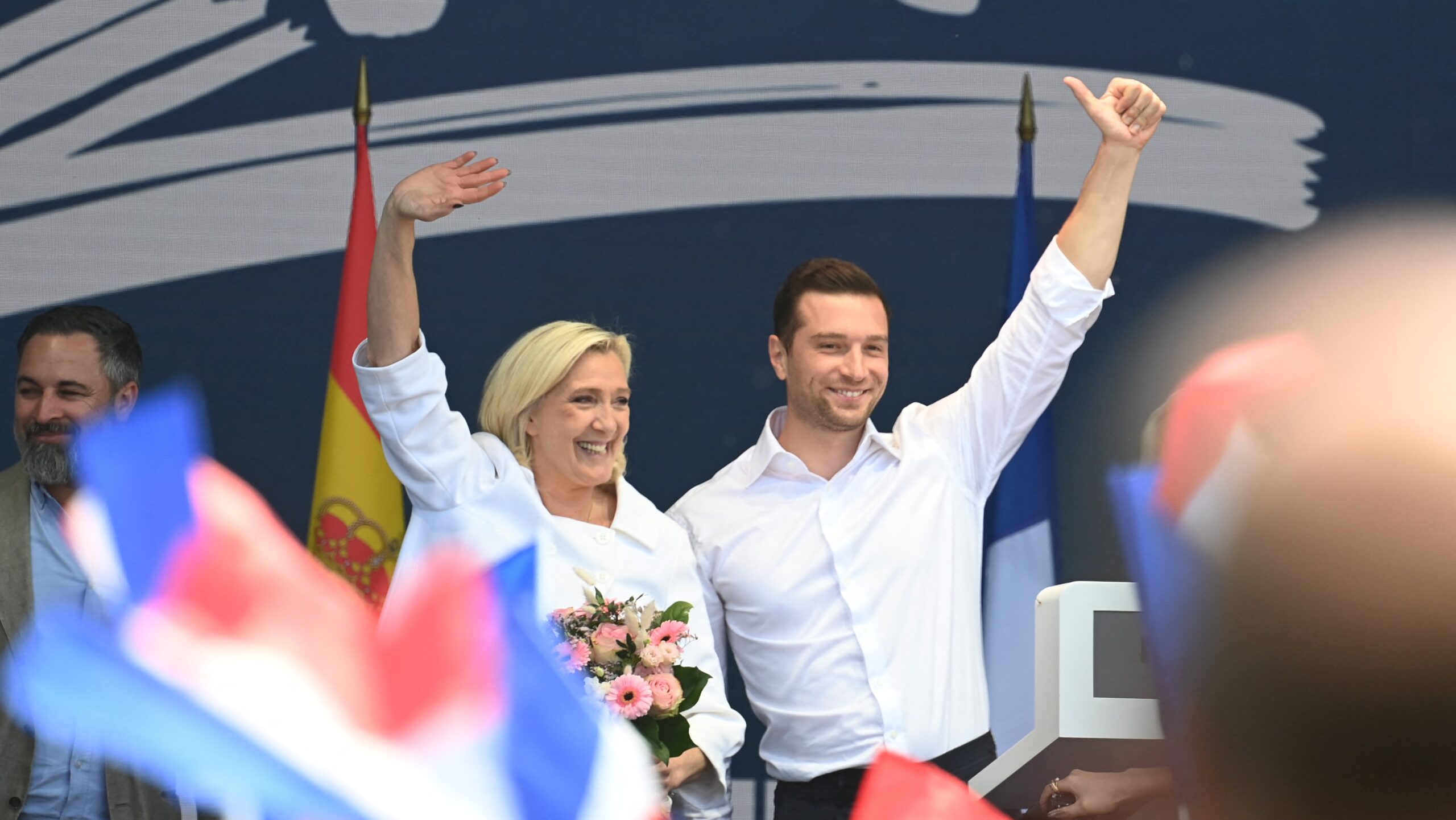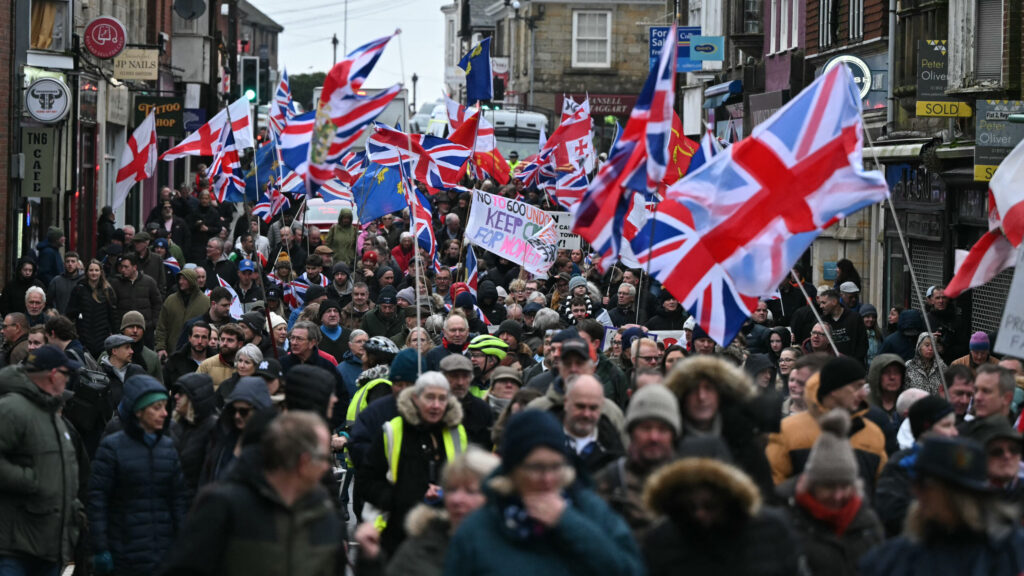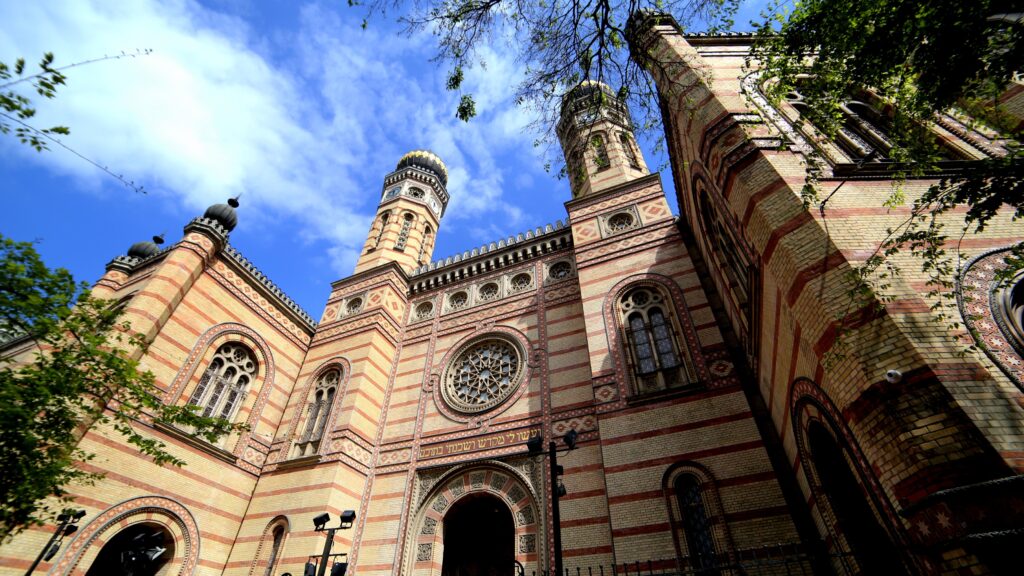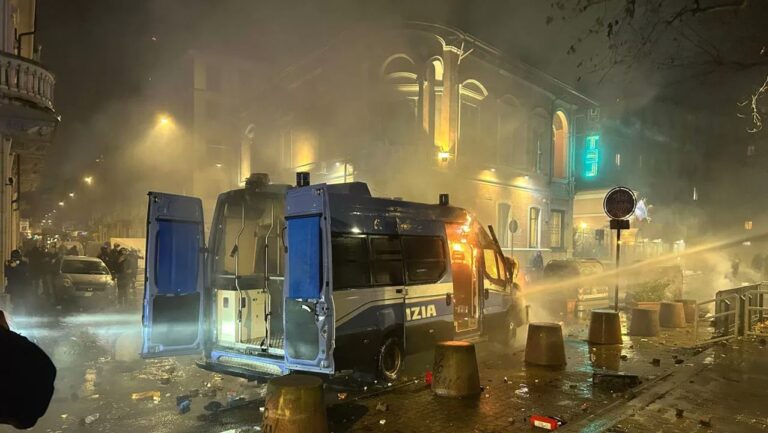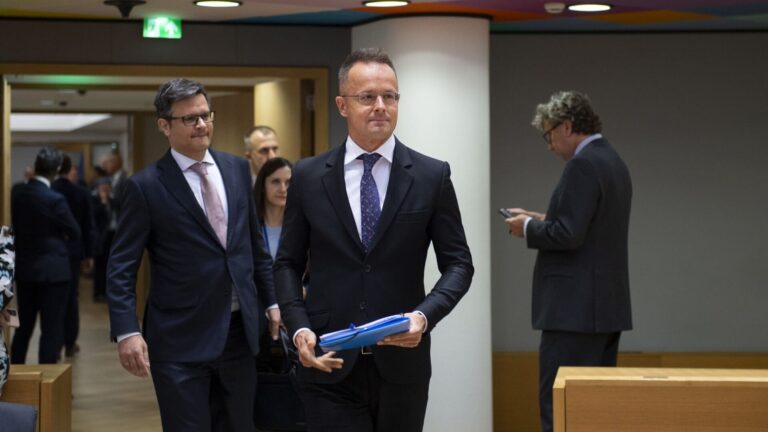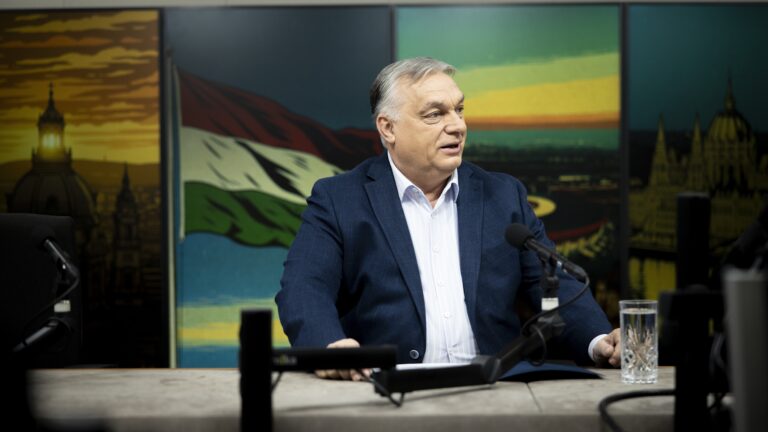A groundbreaking poll released over the weekend by French pollster Elabe shows that the right-wing, anti-immigration National Rally (RN) remains the dominant political force ahead of the 2027 presidential election in France.
According to the results, Jordan Bardella would secure around 35 to 37.5 per cent of the vote if the first round were held this Sunday, while Marine Le Pen would receive roughly 34 per cent. Le Pen, however, is currently barred from running following a court ruling earlier this year that banned her from standing for office for five years. Her appeal trial is scheduled for early 2026, between 13 January and 12 February.
‘Historic record,’ the official National Rally account wrote in a post on X, reacting to the survey results. The statement added that with both Bardella and Le Pen as frontrunners, a ‘patriotic change’ in France’s leadership is now more possible than ever.
Rassemblement National on X (formerly Twitter): “🇫🇷 Record historique !Nous sommes donnés jusqu’à 37,5 % des voix au premier tour de la présidentielle !@MLP_officiel et @J_Bardella devancent très largement tous les autres candidats, rendant plus que jamais possible l’alternance patriote !👉 Rejoignez le premier parti de… pic.twitter.com/Tnif8DjLWr / X”
🇫🇷 Record historique !Nous sommes donnés jusqu’à 37,5 % des voix au premier tour de la présidentielle !@MLP_officiel et @J_Bardella devancent très largement tous les autres candidats, rendant plus que jamais possible l’alternance patriote !👉 Rejoignez le premier parti de… pic.twitter.com/Tnif8DjLWr
The strong performance of the two National Rally figures can be attributed to high mobilization among their base and the support of about a quarter of the Republican Party (LR) and other right-wing voters from the July 2024 legislative elections. ‘And this happens without draining support from other radical right-wing candidates,’ Bernard Sananès, president of the Elabe Institute, told La Tribune Dimanche. ‘In 2022, the radical right as a whole secured 32.35 per cent of the vote in the first round. Now it accounts for more than 40 per cent. This creates very strong momentum heading into the second round.’
The poll also shows that the RN has made notable gains among pensioners—a demographic that had previously been reluctant to support the party. Bardella and Le Pen now attract roughly one-third of senior voters, closing one of their last significant gaps.
The centrist bloc, meanwhile, has lost ground. Support for one of its strongest figures, former prime minister Édouard Philippe, has fallen by five points since April, to 15.5 per cent. Although he remains in second place in most scenarios, he faces a ‘very worrying signal’, according to Elabe, as he has failed to capture more than half of the centrist electorate and has lost support among executives, retirees, and urban voters in the Paris region. ‘He cannot distinguish himself from Macronism or present himself as the face of change,’ Sananès observed.
On the left, Jean-Luc Mélenchon is showing signs of renewed momentum, polling between 11.5 and 13 per cent and catching up to—or even surpassing—Raphaël Glucksmann. Glucksmann remains the best-performing Socialist candidate, attracting about a quarter of the New Popular Front (NFP) electorate from the 2024 legislative elections and drawing roughly 14 per cent of Macronist voters.
President Emmanuel Macron is constitutionally barred from seeking a third term—and politically, he would stand no chance. According to a recent survey by the Verian Group, Macron’s approval rating has fallen to 11 per cent, the lowest level ever recorded by the company. The previous record-holder was Macron’s direct predecessor and former boss, François Hollande, who hit the same 11 per cent in late 2016, shortly before announcing that he would not seek re-election. By Verian’s measure, Macron and Hollande now share the distinction of being France’s least popular presidents since the early 1970s, when the pollster and its predecessors began conducting monthly surveys for Le Figaro.
Related articles:

